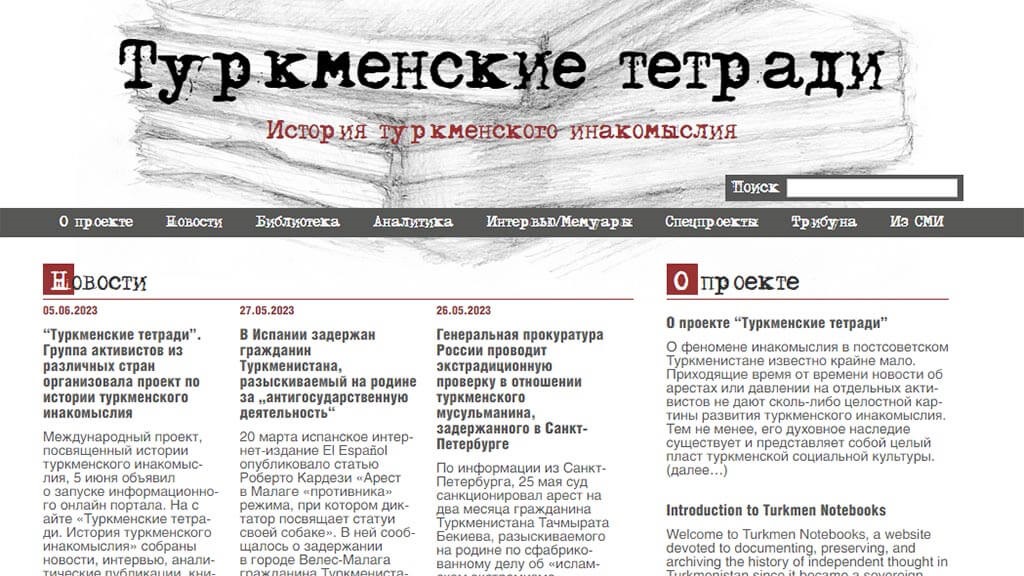The dissent from "Turkmen Notebooks"
A website launched on the history of Turkmenistan's "alternative thought," unknown to the generation that grew up under the rule of the Ruhnama ideology, the so-called "guiding text" written by the first President Nijazov. Publications by opponents, including Soviet-era "samizdat" texts and reports on the country by international organizations, will finally be available.
Ašgabat (AsiaNews) - On June 5, the "Turkmen Notebooks" website, Turkmenskye Tetradi, was launched, dedicated to the history of "alternative thinking" in Turkmenistan. The project was created by Turkmen civil and humanitarian activists now living in different countries around the world, including some still living in Turkmenistan.
The website makers explain that the nation's strict isolation from the outside world since the first post-Soviet president Saparmurat Nijazov, and the repression of all forms of dissent, have led to a gradual loss of historic memory of intellectual opposition to the power installed in Ašgabat. Thus the need to regain awareness and knowlege.
The generation of today's Turkmen, many of whom intend to participate in the movement for the rebirth of civil society, has lived under the sway of the ideology of Ruhnama, the "Book of the Soul" written by Nijazov, the so-called "text-guide" of the Turkmen people. In the introduction he offers "the synthesis of the historical achievements of the intellect, customs, traditions, desires and intentions of our people, their illustrious past and bright future... one part of the Ruhnama is Heaven, the other part is Earth!"
As one of the deputies of the last Supreme Soviet of Turkmenistan, in Gorbačëv's time, Khalmurad Sojunov, who now lives in Sweden, recalls in one of the testimonies reported by the website, "Perestroika was a great novelty for all Soviet peoples, after the series of decrepit secretaries and party leaders, and we were all trying to extract from our blood the essence of the slave, drop by drop, to create a new society."
The Council of Military-Internationalists of Turkmenistan was created in those years to overcome the trauma of the war in Afghanistan, trying to reform the country's politics in the transition from Soviet imperialism to independence, but the forces tied to the past prevailed. As Turkmen writer and journalist Ak Velsapar recalls, "our freedom of expression lasted for less than a year"; in February 1991, two months after the end of the USSR, the new president Nijazov restored state censorship.
Young people know nothing of the opposition to the regime in place during the last 32 years of independence. Many materials of early dissidents have been lost or are in private collections, and are not accessible to today's activists, journalists, and experts. The site was made possible by the availability of the U.S.-based platform Crude Accountability, and is divided into the sections of "Current Affairs," "Library," "Analytics," "Interviews/Memories," "Special Projects," and "Tribune."
Publications by Turkmen opponents, including Soviet-era "samizdat" texts and editions in emigration, which began to be published in hard copy in the early 1990s, will finally be available. Reports by international organizations on Turkmenistan and books by Turkmen authors, foreign scholarly editions of ethnography, history and culture of the Turkmen people, interviews with important figures in the country's social and political life, and research on specific issues will also be uploaded to the site.







.png)










